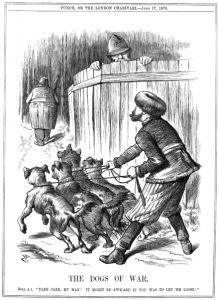Stalin deported the Crimean Tatars and other Turkic peoples from the southern portions of the USSR because he was preparing for a war with Türkiye, Ukrainian historian Serhiy Hromenko pointed out in a lecture at Kyiv’s National Museum of the History of Ukraine.
“The real cause of the deportation of the Crimean Tatars [then],” the specialist at the Ukrainian Institute of National Memory argued, “was that Stalin was preparing for a war with Türkiye.” In Stalin’s understanding, Crimea and the Caucasus were to become the main theaters of military operations” in this war.

“In 1944,” Hromenko said, “this war almost began. But when in the second half of the 1940s,” the Soviet leader returned to this idea, Türkiye had already joined NATO, and “the US fleet protected its shores. Thus, a war with Türkiye did not begin but the rear areas [of such a potential conflict] were protected.
The Ukrainian historian did not draw parallels with the current situation, but they are so obvious and disturbing that one cannot fail to see them. If one accepts his reading of the events of 1944, then did Putin occupy Crimea for same reason Stalin deported Crimean Tatars?

And if that is the case, then Putin’s actions over the last year and the current upsurge in tensions between Moscow and Ankara are not a set of disconnected events but rather part of a larger and more ominous plan by which the Kremlin leader may hope to “correct” what he sees as Khrushchev’s mistake in handing over Crimea to Ukraine.
Instead, it could be that Putin is seeking to achieve something Russian leaders hoped for during World War I: the dismemberment of Türkiye and Russian control of the straits of the Bosphorus and the Dardanelles. Some Russian nationalist and Orthodox commentators have raised that possibility.
But one thing they don’t mention that perhaps Putin should recall: It was the exposure of the secret treaties between Russia and the Western allies on this point that led to the first splits in Russian Provisional Government in 1917 that ultimately contributed to the weakening of that government to the point that it fell.





